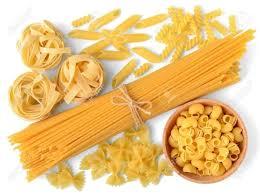In a culinary twist that has left both economists and citizens bewildered, Zimbabwe has reportedly spent a staggering US$40 million on importing spaghetti. This revelation has sparked a mixture of disbelief, humor, and concern across the nation.
Pasta-Mania: A National Obsession?
The news of Zimbabwe’s extravagant pasta expenditure has ignited speculation about a sudden national obsession with Italian cuisine. Social media platforms are teeming with memes, depicting Zimbabweans as newfound spaghetti aficionados, complete with chef hats and extravagant pasta dishes.
“What’s next, sadza carbonara?” quipped one Twitter user, while another joked, “Who knew our economic salvation lay in spaghetti bolognese?”
The Economic Perspective
From an economic standpoint, many experts are baffled by the decision to allocate such a significant sum to importing a non-essential food item. This comes at a time when the country is facing severe economic challenges and foreign currency shortages.
“This is a classic example of misplaced priorities,” commented Chimuti Chimuti. “Our focus should be on importing essential goods like medical supplies and industrial equipment, not luxury food items.”
Government Response
In an attempt to quell the uproar, a government spokesperson provided an explanation. “The importation of spaghetti is part of a broader strategy to diversify the national diet and improve food security,” the spokesperson stated, seemingly without irony. “Spaghetti is versatile, easy to prepare, and has a long shelf life.”
Critics, however, were quick to highlight the absurdity of this rationale. One commentator remarked, “If the goal is food security, investing in local agriculture would be far more effective than importing vast quantities of pasta.”
The Lighter Side
Amidst the serious debate, some have taken a more lighthearted approach to the situation. An enterprising individual announced the launch of “ZimPasta,” a locally-produced spaghetti alternative, promising to blend Italian techniques with traditional Zimbabwean flavors.
Others have humorously suggested turning the spaghetti surplus into a tourist attraction. “Visit Zimbabwe, home of the spaghetti mountain!” reads one satirical travel brochure circulating online.
A Wake-Up Call?
While the spaghetti saga has provided plenty of material for jokes and memes, it also underscores the urgent need for more prudent economic planning and resource allocation. As Zimbabwe navigates its economic difficulties, this pasta predicament could serve as a catalyst for more thoughtful and strategic decision-making in the future.
For now, at least, Zimbabweans can find some solace in knowing that should they ever need a quick and easy meal, there’s no shortage of spaghetti to go around.






